Time Travel, Teleportation & Science
Time travel is the concept of moving between different points in time in a manner analogous to moving between different points in space, generally using a theoretical invention, namely a time machine. It has a commonly recognized place in philosophy and fiction, but has a very limited application in real world physics, such as in quantum mechanics or wormholes.
Although the 1895 novel The Time Machine by H. G. Wells was instrumental in moving the concept of time travel to the forefront of the public imagination, The Clock That Went Backward by Edward Page Mitchell was published in 1881 and involves a clock that allowed three men to travel backwards in time.[1][2] Non-technological forms of time travel had appeared in a number of earlier stories such as Charles Dickens' A Christmas Carol. Historically, the concept dates back to the early mythologies of Hinduism (such as the Mahabharata), Buddhism, and Islam through ancient folk tales. More recently, with advancing technology and a greater scientific understanding of the universe, the plausibility of time travel has been explored in greater detail by science fiction writers, philosophers, and physicists.
Teleportation, or Teletransportation, is the theoretical transfer of matter or energy from one point to another without traversing the physical space between them. It has a commonly recognized place in science fiction literature, film, and television, but as yet has a very limited application in real world physics, such as quantum teleportation or the study of wormholes.
Science (from Latin scientia, meaning "knowledge") is a systematic enterprise that builds and organizes knowledge in the form of testable explanations and predictions about the universe. In an older and closely related meaning, "science" also refers to a body of knowledge itself, of the type that can be rationally explained and reliably applied. A practitioner of science is known as a scientist.
In modern usage, "science" most often refers to a way of pursuing knowledge, not only the knowledge itself. It is also often restricted to those branches of study that seek to explain the phenomena of the material universe.
Source : Wikipedia
-
40:40
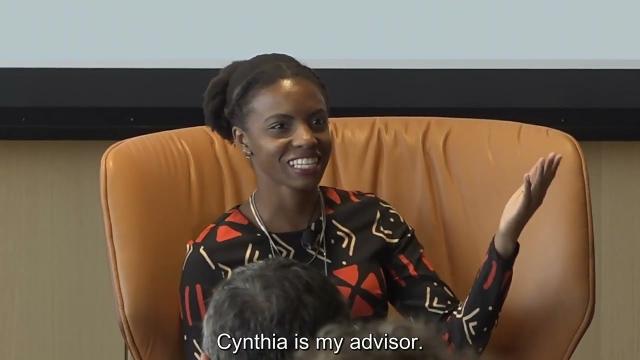
Generative AI + Education: Reinventing the Learner Experience
Added 43 Views / 0 LikesModerator Cynthia Breazeal in conversation with panelists Randi Williams, Anjali Sastry, Jesse Thaler, and Rachael Harkavy. Watch more videos from MIT: http://www.youtube.com/user/MITNewsOffice?sub_confirmation=1The Massachusetts Institute of Technology i
-
43:48
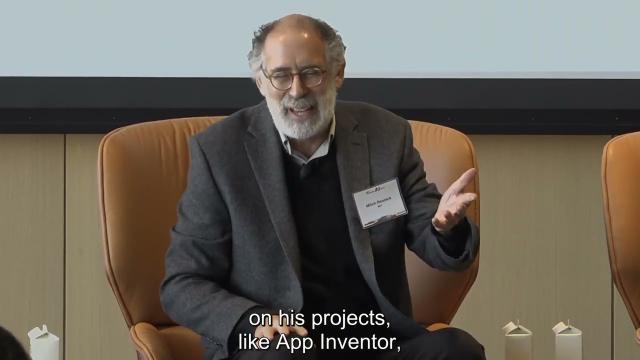
Generative AI + Education: Will Generative AI Transform Learning and Education
Added 43 Views / 0 LikesCynthia Breazeal and Chris Capozzola set the stage, followed by Philipp Schmidt moderating a conversation with Mitch Resnick and Justin Reich. Watch more videos from MIT: http://www.youtube.com/user/MITNewsOffice?sub_confirmation=1The Massachusetts Instit
-
01:52
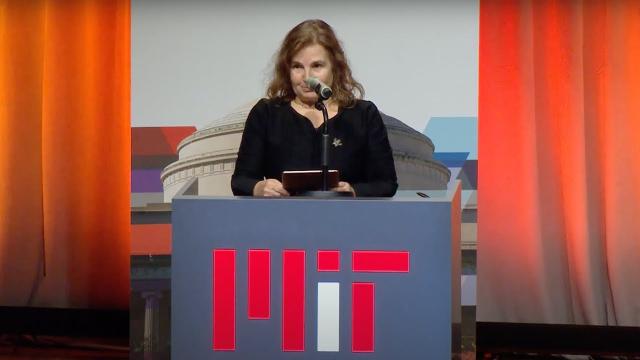
Generative AI Shaping The Future Closing Remarks
Added 40 Views / 0 LikesDaniela Rus concludes the day with gratitude to the guests and hopes that the audience leaves with meaningful insights.Watch more videos from MIT: http://www.youtube.com/user/MITNewsOffice?sub_confirmation=1The Massachusetts Institute of Technology is an
-
13:25
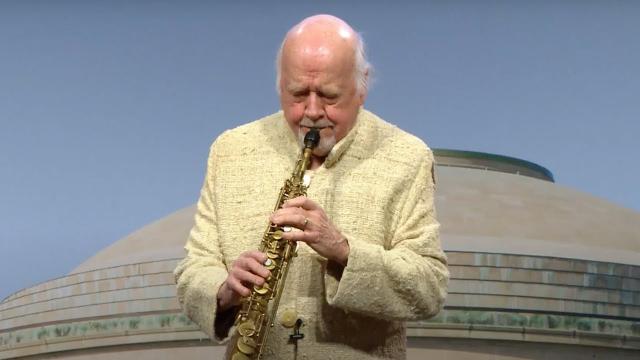
Musical performance: Lullaby for a Whale
Added 50 Views / 0 LikesMusician Paul Winter performs “Lullaby for a Whale” on the saxophone.Watch more videos from MIT: http://www.youtube.com/user/MITNewsOffice?sub_confirmation=1The Massachusetts Institute of Technology is an independent, coeducational, privately endowed univ
-
23:53
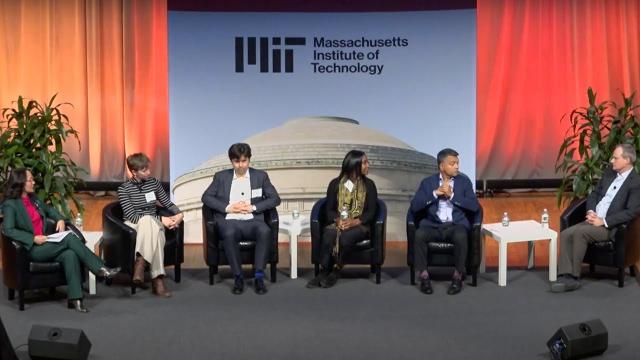
Generative AI Ethics and Society Roundtable Discussion
Added 45 Views / 0 LikesCynthia Breazeal, Professor, MIT Media Arts and Sciences and Dean for Digital Learning, talks to all five speakers about the ethical and societal implications of generative AI.Watch more videos from MIT: http://www.youtube.com/user/MITNewsOffice?sub_confi
-
08:17
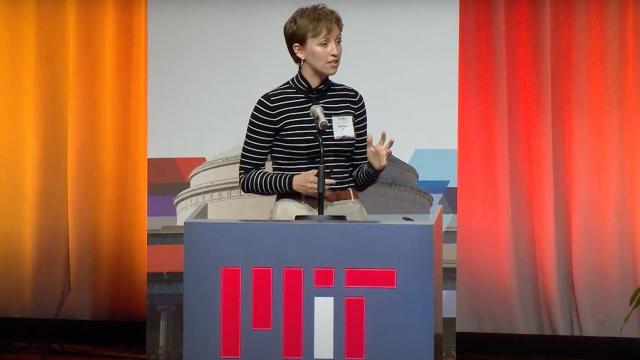
Generative AI Ethics and Society: Sara Beery
Added 38 Views / 0 LikesSara Beery, Assistant Professor, MIT EECS and CSAIL, speaks about the ways generative AI can help us understand sustainability, ecosystem health, and potentially the health of our planet.Watch more videos from MIT: http://www.youtube.com/user/MITNewsOffic
-
10:59
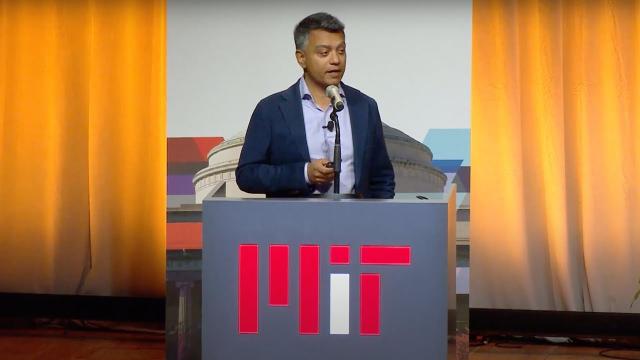
Generative AI Ethics and Society: Deb Roy
Added 40 Views / 0 LikesDeb Roy, Professor, Media Arts and Sciences and Director of MIT Center for Constructive Communication, discusses how generative AI can be integrated into social networks to potentially strengthen democracy.Watch more videos from MIT: http://www.youtube.co
-
09:10
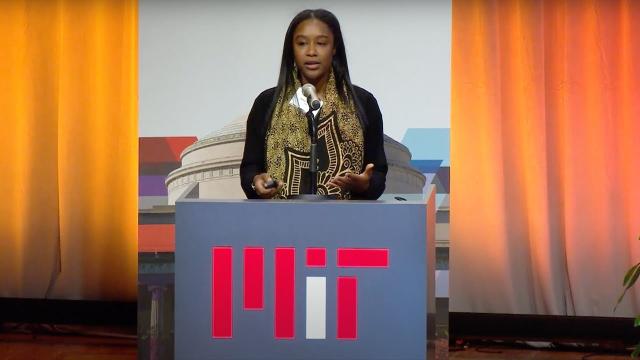
Generative AI Ethics and Society: Aisha Wilson
Added 38 Views / 0 LikesAshia Wilson, Assistant Professor, MIT EECS, and LIDS, on how generative AI can enhance and impact plurality in an increasingly algorithm-driven world.Watch more videos from MIT: http://www.youtube.com/user/MITNewsOffice?sub_confirmation=1The Massachusett
-
11:17
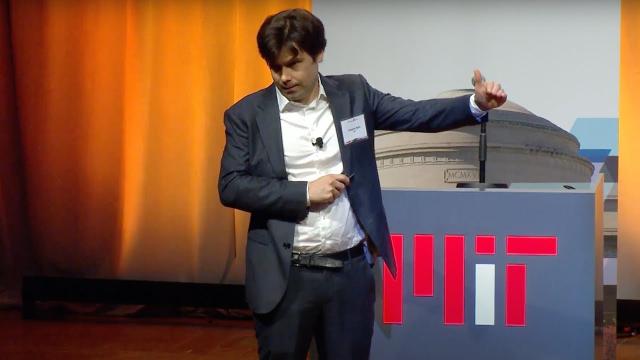
Generative AI Ethics and Society: Casper Hare
Added 40 Views / 0 LikesCaspar Hare, Professor, MIT Department of Linguistics and Philosophy, discusses the ethics of agential AI. Watch more videos from MIT: http://www.youtube.com/user/MITNewsOffice?sub_confirmation=1The Massachusetts Institute of Technology is an independent,
-
00:30
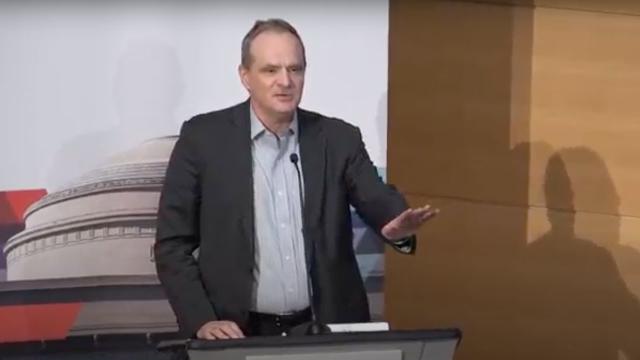
Generative AI Impact on Commerce Closing Remarks
Added 47 Views / 0 LikesSimon Johnson concludes Generative AI Week by thanking the audience, organizers, and guests.Watch more videos from MIT: http://www.youtube.com/user/MITNewsOffice?sub_confirmation=1The Massachusetts Institute of Technology is an independent, coeducational,
-
33:19
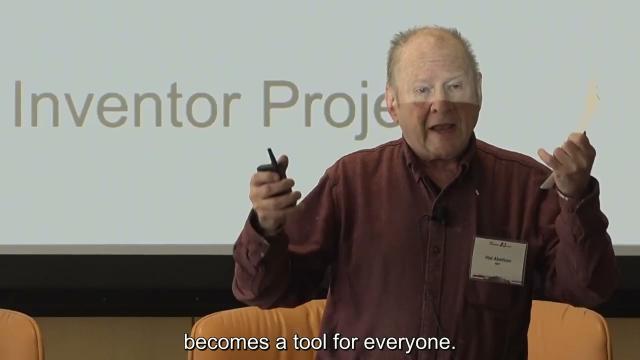
Generative AI +: Education: Big Ideas from MIT and Closing remarks
Added 36 Views / 0 LikesModerator Philipp Schmidt in conversation with Hal Abelson, Megan Muniz, and Pattie Maes. Closing remarks by Cynthia Breazeal and Chris Capozolla. Watch more videos from MIT: http://www.youtube.com/user/MITNewsOffice?sub_confirmation=1The Massachusetts In
-
10:37
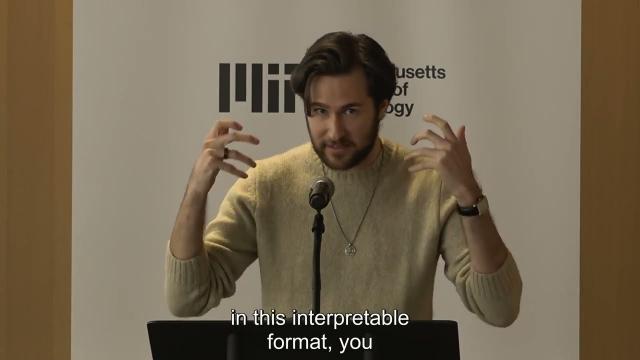
Generative AI + Education Afternoon Lightning Talks
Added 42 Views / 0 LikesShort introductions to research projects from David Kim, Evan Patton, Alek Hunter Kemeny, Ferdi Alimadhi, Pat Pataranutaporn, and Valdemar Munch Danry.Watch more videos from MIT: http://www.youtube.com/user/MITNewsOffice?sub_confirmation=1The Massachusett
-
01:19
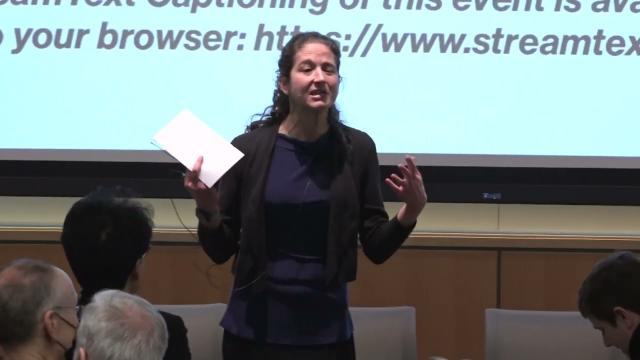
Generative AI + Health Opening Remarks
Added 47 Views / 0 LikesProfessor Elsa Olivetti introduces the structure and goals of the Generative AI in Health Symposium. Watch more videos from MIT: http://www.youtube.com/user/MITNewsOffice?sub_confirmation=1The Massachusetts Institute of Technology is an independent, coedu
-
16:13
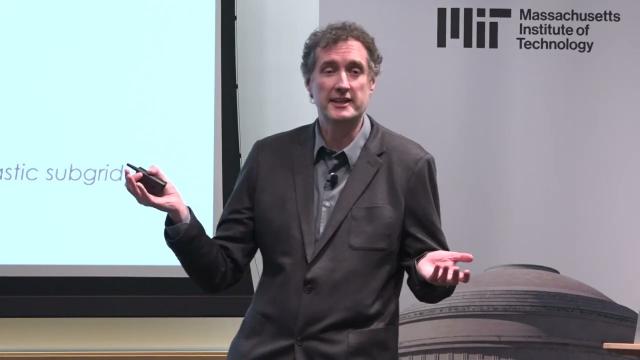
Improving Climate Models Using Machine Learning
Added 35 Views / 0 LikesProfessor Paul O’Gorman of MIT’s Department of Earth, Atmospheric and Planetary Sciences discusses how machine learning can improve upon and overcome difficulties of current climate modeling techniques.Watch more videos from MIT: http://www.youtube.com/us
-
16:29
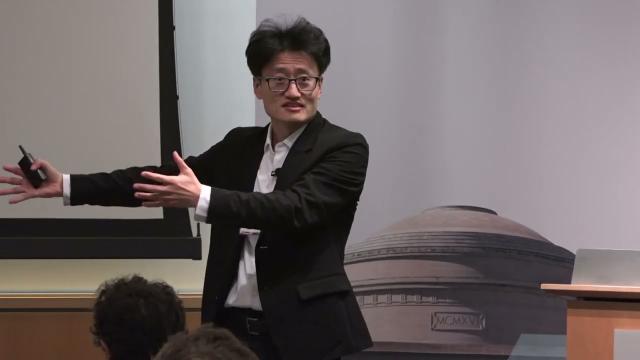
Mobility and Cities: Five areas AI helps and where it does not
Added 36 Views / 0 LikesProfessor Jinhua Zhao of MIT’s Department of Urban Studies and Planning discusses how AI impacts human transportation and ways it cannot yet meet our needs.Watch more videos from MIT: http://www.youtube.com/user/MITNewsOffice?sub_confirmation=1The Massach
-
15:34
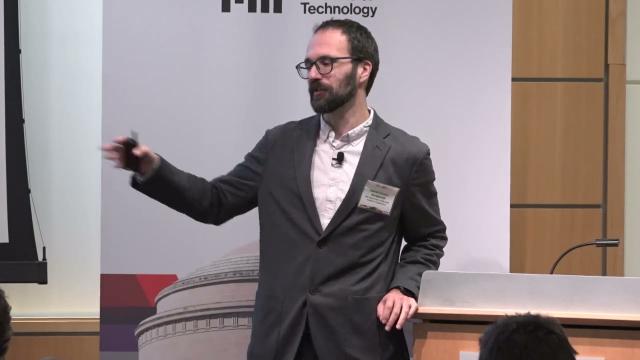
Fusing Machine Learning and Simulations for Materials Design
Added 36 Views / 0 LikesProfessor Rafael Gomez-Bombarelli of MIT’s Department of Materials Science and Engineering discusses how AI can help design sustainable materials and materials production.Watch more videos from MIT: http://www.youtube.com/user/MITNewsOffice?sub_confirmati
-
15:34
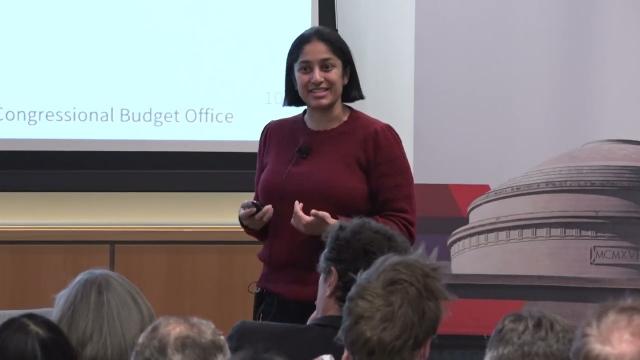
Tackling Climate Change with Machine Learning
Added 40 Views / 0 LikesProfessor Priya Donti of MIT’s EECS and LIDS, and co-founder and chair of Climate Change AI discusses the current landscape of machine learning’s impact on climate change.Watch more videos from MIT: http://www.youtube.com/user/MITNewsOffice?sub_confirmati
-
46:35
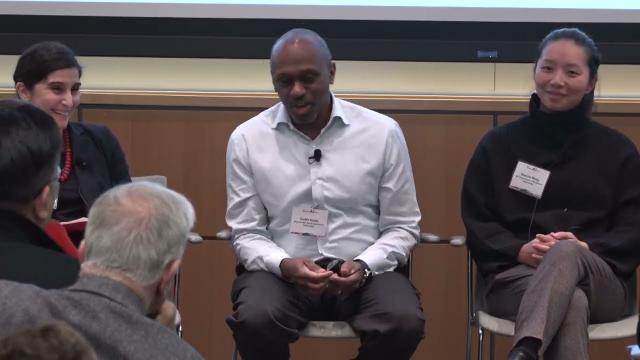
Generative AI + Health: The Link Between Health of the Planet and the Health of People
Added 45 Views / 0 LikesModerator Lydia Bourouiba in conversion with Collin Stultz, Matthew Vander Heiden, Anna Marie Wagner, and Sherrie Wang.Watch more videos from MIT: http://www.youtube.com/user/MITNewsOffice?sub_confirmation=1The Massachusetts Institute of Technology is an
-
26:25
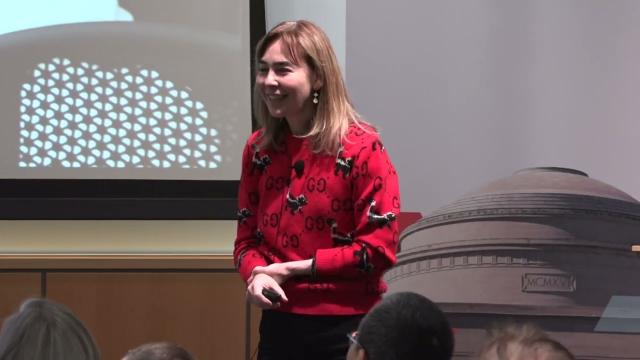
Using AI to Understand Neurological Diseases and their Therapies
Added 42 Views / 0 LikesProfessor Dina Katabi of MIT’s Department of Electrical Engineering and Computer Science discusses how AI can help us understand neurodegenerative diseases and the effectiveness of therapies used to treat those diseases.Watch more videos from MIT: http://
-
18:40
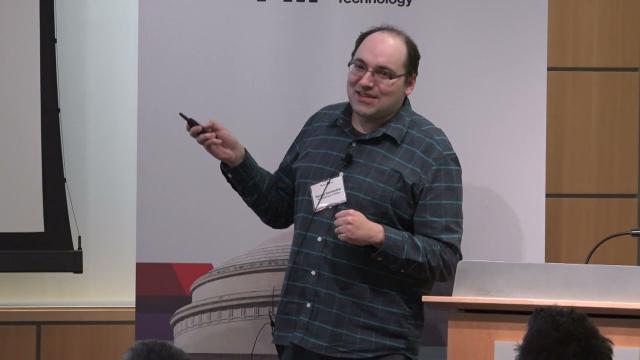
Inverting Protein Structure Prediction Models for Protein Generation
Added 40 Views / 0 LikesProfessor Sergey Ovchinnikov of MIT’s Department of Biology discusses how to make protein design user-friendly and the potential applications of protein generation.Watch more videos from MIT: http://www.youtube.com/user/MITNewsOffice?sub_confirmation=1The
